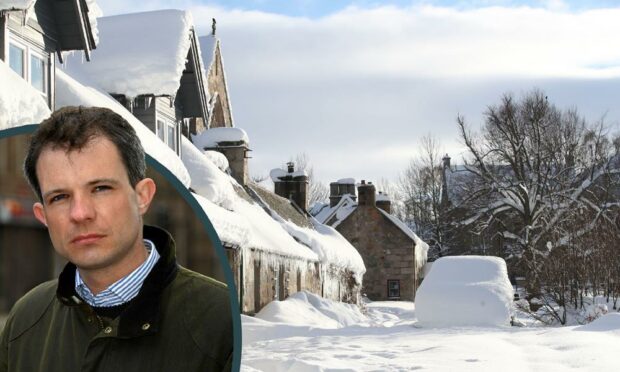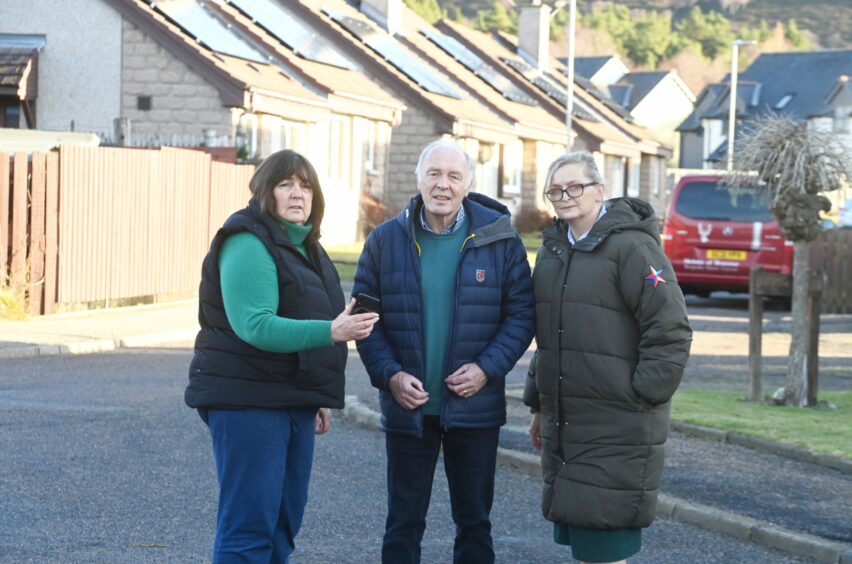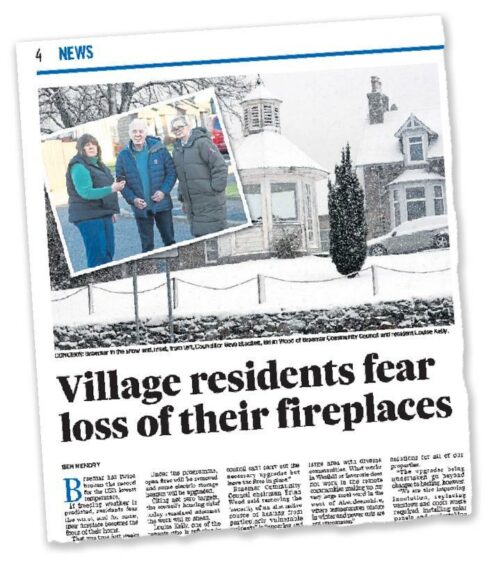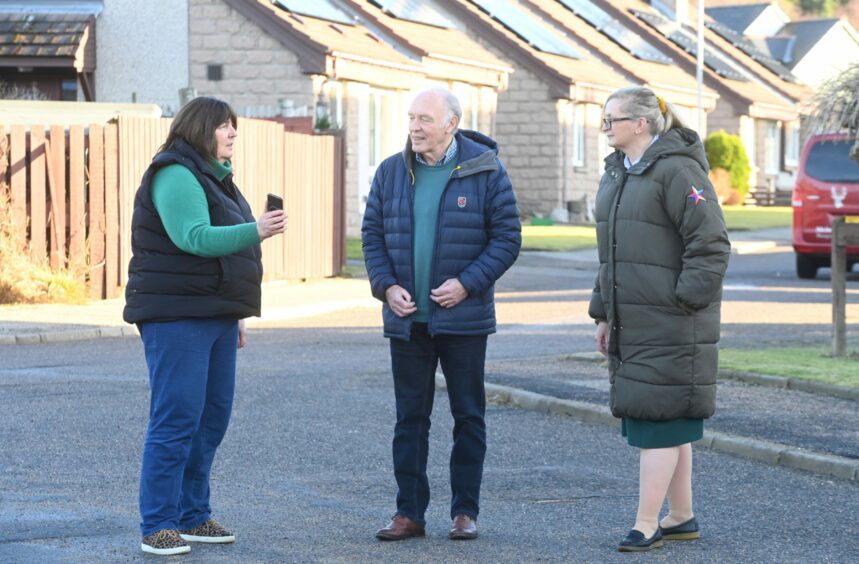Removing “vital” fireplaces could lead to a “human crisis in the future” for people in Braemar, a politician has warned.
Aberdeenshire Council has today started tearing out open fires from local authority housing on Balnellan Road and Balnellan Place – despite the protests of residents.
Neighbours say their fireplaces were vital when Storm Arwen sparked major power outages and sent temperatures plummeting.
The local authority is upgrading electric storage heaters in the affected homes, and stressed that the move away from “solid fuel” is needed to achieve national environment targets.
Braemar fireplaces kept away chill amid Arwen devastation
Andrew Bowie, West Aberdeenshire and Kincardine MP, is urging Holyrood to put a stop to the process.
He said: “Storm Arwen showed just how many people living in rural parts of Scotland can see utilities disrupted at a stroke.
“Rather than freeze for almost two weeks, some relied on solid fuel heating and coal fires out of necessity.
“It is true councils must comply with Scottish Government legislation.
“But the Energy Efficiency Standard for Social Housing makes the same rules for modern town houses in Edinburgh as it does 200-year-old cottages in Aberdeenshire.”
‘Make a special case for Braemar’
Mr Bowie added: “I would like to see the SNP-Green coalition at Holyrood give some dispensation to settlements like Braemar, which are on the knife edge for extreme weather events.
“When the power’s out, the next storm won’t account for how many storage heaters or new boilers there are.
“But removing vital backup fireplaces could lead to a human crisis in the future.”
The controversial issue came to light late last week, with six residents battling to keep their fires.
It comes just weeks after the importance of their fires became clear, and at a time when many are living in fear of rising heating costs.
The council remains committed to the “housing improvement plan”, citing the need to “meet statutory and regulatory energy efficiency standards”.
Warm home a ‘basic need’
A Scottish Government spokeswoman appeared to rule out any change in the policy.
She said operators were making power distribution networks more robust, so they can better handle adverse weather in the future.
She said: “We acknowledge the feelings of residents.
“A safe, warm place to call home is one of our fundamental basic needs.”
As part of the government’s “heat in buildings” programme, about £1.8 billion will make sure homes “are warmer and cheaper to heat”.
Ministers say that will help ensure that poor energy efficiency does not drive anyone into fuel poverty.
Braemar fireplace hopes doused?
The spokeswoman added: “We recognise that in the transition to zero-carbon heating, resilience is a major priority.
“We are working with electricity network operators to strengthen networks where this is necessary.”
She said the standards for social housing would remain under review.
‘Politicians need to wake up’
Braemar councillor Geva Blackett, who has been campaigning on the issue alongside affected residents, was dismayed at the government’s stance.
She said: “Reliance on electricity is not a solution to poor energy efficiency when temperatures regularly drop to below zero and prices are escalating…
“That is an open door to increasing fuel poverty.
“The rather blinkered rush to decarbonise everything – before a realistic approach to prevailing conditions and needs in a community are assessed – is not something I can support, sorry.
“I would be interested to know how many rural Scottish MPs or MSPs have either log burning stoves or open fires in their constituency homes – and would ask them to imagine how it feels to have to choose between food and electric heat with no option to burn logs.”
Ms Blackett added: “Fuel poverty leads to ill health – both mental and physical.
“Braemar is not Inverurie or Edinburgh or London, it is on record as having the lowest temperatures in Britain and politicians need to wake up to the impact of their legislation on the innocent people they serve.”
You can read more about the issue here:



